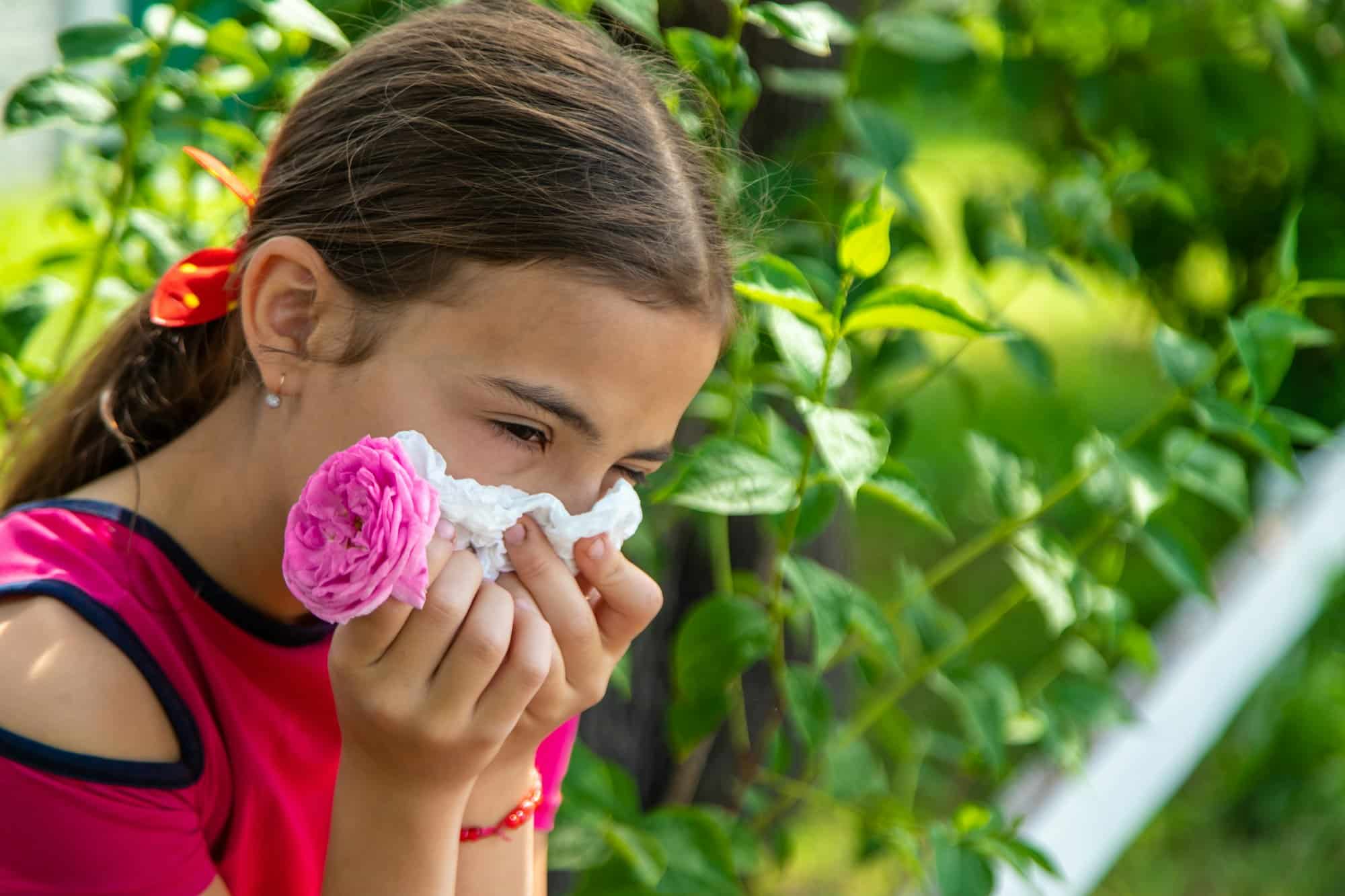Seasonal allergies can significantly impact daily life for many in the UK. Fortunately, natural solutions offer relief without side effects. This guide explores effective remedies and lifestyle adjustments tailored for allergy sufferers. Learn to manage symptoms and enjoy the beauty of each season, naturally. Embrace these strategies to reclaim your comfort and well-being. Say goodbye to discomfort and hello to a more vibrant, allergy-free life.
Overview of Seasonal Allergies in the UK
Seasonal allergies, often referred to as hay fever, are allergic reactions caused by pollen from trees, grasses, and weeds. These allergies can lead to a range of symptoms including sneezing, itchy eyes, and a runny nose. In the UK, the timing of these allergies is closely linked to the pollen counts, which vary throughout the year.
Additional reading : Top UK Dietary Strategies for Effectively Managing PCOS Symptoms
The seasonal timing of allergies in the UK is generally divided into three main periods. Tree pollen is prevalent from late March to mid-May, grass pollen from mid-May to July, and weed pollen from late June to September. Understanding these timings is crucial for managing symptoms effectively.
Monitoring local pollen counts is essential for those affected by seasonal allergies. High pollen counts can exacerbate symptoms, making it important for individuals to plan their outdoor activities accordingly. By staying informed about pollen levels, sufferers can take proactive steps to minimise their exposure and alleviate symptoms.
Have you seen this : Top Footwear Options to Safeguard Your Knees During Marathons in the UK
Natural Remedies for Seasonal Allergies
When it comes to managing seasonal allergies, many individuals are exploring natural remedies as an alternative or complement to conventional treatments. These remedies can offer relief by addressing symptoms in a holistic manner.
Homeopathic Treatments
Homeopathy is a popular choice for those seeking gentle, non-invasive solutions. It involves using highly diluted substances to stimulate the body's own healing processes. While the scientific community remains divided on their effectiveness, some individuals report significant relief from allergy symptoms through homeopathic treatments. Remedies such as Allium cepa, made from onions, are believed to help with sneezing and a runny nose, while Sabadilla is used for nasal congestion.
Herbal Solutions
Herbal solutions offer another natural approach to alleviating allergy symptoms. For example, butterbur is renowned for its anti-inflammatory properties and has been shown to reduce nasal congestion and sneezing. Similarly, nettle leaf is often used for its antihistamine effects, helping to reduce the body's allergic response. Quercetin, a natural flavonoid found in many fruits and vegetables, is also praised for its ability to stabilise mast cells and reduce histamine release.
By incorporating these natural remedies into their routine, individuals may find a more balanced approach to managing their seasonal allergies.
Dietary Adjustments to Alleviate Symptoms
Exploring dietary changes can be a beneficial strategy for those seeking allergy relief. Adjusting one's diet to include specific anti-inflammatory foods can help manage and reduce allergy symptoms effectively.
Importance of Diet in Managing Allergy Symptoms
Diet plays a crucial role in managing allergy symptoms. Consuming foods rich in anti-inflammatory properties can help mitigate the body's allergic response, providing a natural form of relief. By focusing on dietary adjustments, individuals can support their body's ability to handle allergens more efficiently.
Anti-Inflammatory Foods
Incorporating anti-inflammatory foods into your diet is a practical step towards reducing allergy symptoms. These foods can help soothe the body's inflammatory response:
- Fatty fish: Rich in omega-3 fatty acids, such as salmon and mackerel, these can help reduce inflammation.
- Leafy greens: Spinach and kale are packed with antioxidants and nutrients that promote a healthy immune system.
- Turmeric: Known for its active compound curcumin, turmeric can help lower inflammation levels.
- Ginger: This root has natural anti-inflammatory properties and can be easily added to meals or consumed as tea.
Foods to Avoid
Certain foods may exacerbate allergy symptoms and should be avoided to minimise discomfort:
- Dairy products: These can increase mucus production, worsening congestion.
- Processed foods: High in preservatives and additives, these can trigger allergic reactions.
- Refined sugars: These can promote inflammation and should be limited for optimal allergy relief.
By making informed dietary changes, individuals can find a supportive approach to manage their seasonal allergies, potentially reducing reliance on conventional treatments.
Lifestyle Changes for Allergy Management
Adopting effective lifestyle adjustments can significantly aid in allergy management by reducing exposure to allergens and alleviating symptoms. Simple yet impactful preventive measures can be integrated into daily routines to enhance comfort during allergy seasons.
Maintaining a clean indoor environment is crucial. Regularly vacuuming with a HEPA filter, washing bedding in hot water, and using air purifiers can help minimise indoor allergens. It's also beneficial to keep windows closed during high pollen seasons to prevent outdoor allergens from entering the home.
For outdoor activities, timing is key. Engaging in outdoor exercises during low pollen times, typically in the late afternoon or after rain, can reduce exposure. Wearing sunglasses and hats can protect your eyes and hair from pollen. Additionally, showering and changing clothes after outdoor activities can effectively remove pollen from your body, further aiding in allergy management.
User Testimonials and Success Stories
Exploring user testimonials offers valuable insights into the effectiveness of natural remedies for seasonal allergies. Many individuals have shared their personal experiences, highlighting the benefits and challenges of various approaches.
One common theme among these testimonials is the success of incorporating herbal solutions like butterbur and nettle leaf. Users frequently report a noticeable reduction in symptoms such as nasal congestion and sneezing, attributing these improvements to the anti-inflammatory and antihistamine properties of these herbs. For instance, a user mentioned that regular consumption of nettle tea significantly eased their symptoms during peak pollen seasons.
Another popular approach is the use of homeopathic treatments. While opinions vary, some individuals have found relief through remedies like Allium cepa, which they claim helps with sneezing and a runny nose. These personal accounts often emphasise the gentle nature of homeopathy, appealing to those seeking non-invasive solutions.
Dietary adjustments also feature prominently in success stories. Many users have adopted anti-inflammatory foods, such as fatty fish and leafy greens, into their meals. They share experiences of reduced inflammation and overall well-being, underscoring the role of diet in managing allergies.
Overall, these personal experiences highlight the diverse strategies individuals use to combat seasonal allergies. By sharing their journeys, users provide a roadmap for others seeking effective natural remedies.
Potential Side Effects and Considerations
When exploring natural treatments for seasonal allergies, it's important to be aware of possible side effects and safety considerations. While many people find relief through these remedies, they are not without potential risks.
Overview of Potential Side Effects
Natural remedies, such as herbal supplements, can sometimes cause allergic reactions or interact with other medications. For instance, butterbur, despite its benefits, may lead to headaches or digestive issues in some individuals. Similarly, nettle leaf, although generally safe, can occasionally cause stomach upset or skin irritation.
Importance of Consulting Healthcare Professionals
Before starting any natural treatment, consulting a healthcare professional is crucial. They can provide guidance on the suitability of these remedies based on individual health profiles and ensure that there are no adverse interactions with existing medications. This is especially important for those with pre-existing conditions or who are pregnant or breastfeeding.
Considerations for Individuals with Pre-existing Conditions or Sensitivities
Individuals with known sensitivities or pre-existing conditions should exercise caution when considering natural treatments. For example, those with ragweed allergies might experience cross-reactivity with certain herbal supplements like chamomile. Additionally, individuals with liver conditions should be cautious with certain remedies like butterbur, which may affect liver function.
Additional Resources and Local Information
Navigating seasonal allergies can be challenging, but having access to local resources can make a significant difference. Understanding where to find accurate pollen forecasts and engaging with allergy support groups can empower individuals to manage their symptoms more effectively.
Pollen Tracking Resources
For those affected by seasonal allergies, staying informed about pollen levels is crucial. The UK offers several reliable resources for tracking pollen forecasts. Websites like the Met Office provide up-to-date pollen counts, helping individuals plan their activities to minimize exposure. Additionally, many weather apps now include pollen tracking features, offering convenient access to local data.
Allergy Support Groups
Connecting with allergy support groups can provide both emotional support and practical advice. These groups often share tips on managing symptoms and offer a platform for discussing personal experiences. Local organizations, such as Asthma UK, host forums and events where individuals can learn more about coping strategies and new treatments.
Seeking Professional Help
While many can manage their symptoms with over-the-counter remedies and lifestyle changes, there are times when professional help is necessary. It's important to consult a healthcare provider if symptoms become severe or unmanageable. They can offer tailored advice and prescribe treatments that may not be available over the counter. Recognizing when to seek this help is key to maintaining quality of life during allergy seasons.











